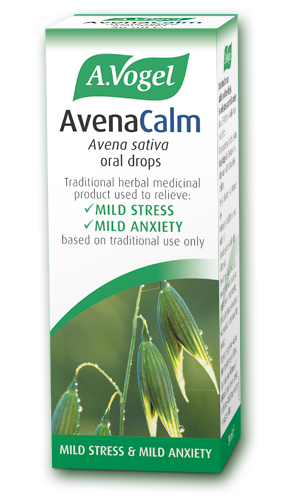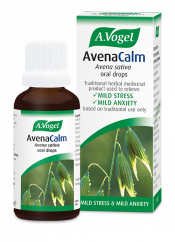Digestion
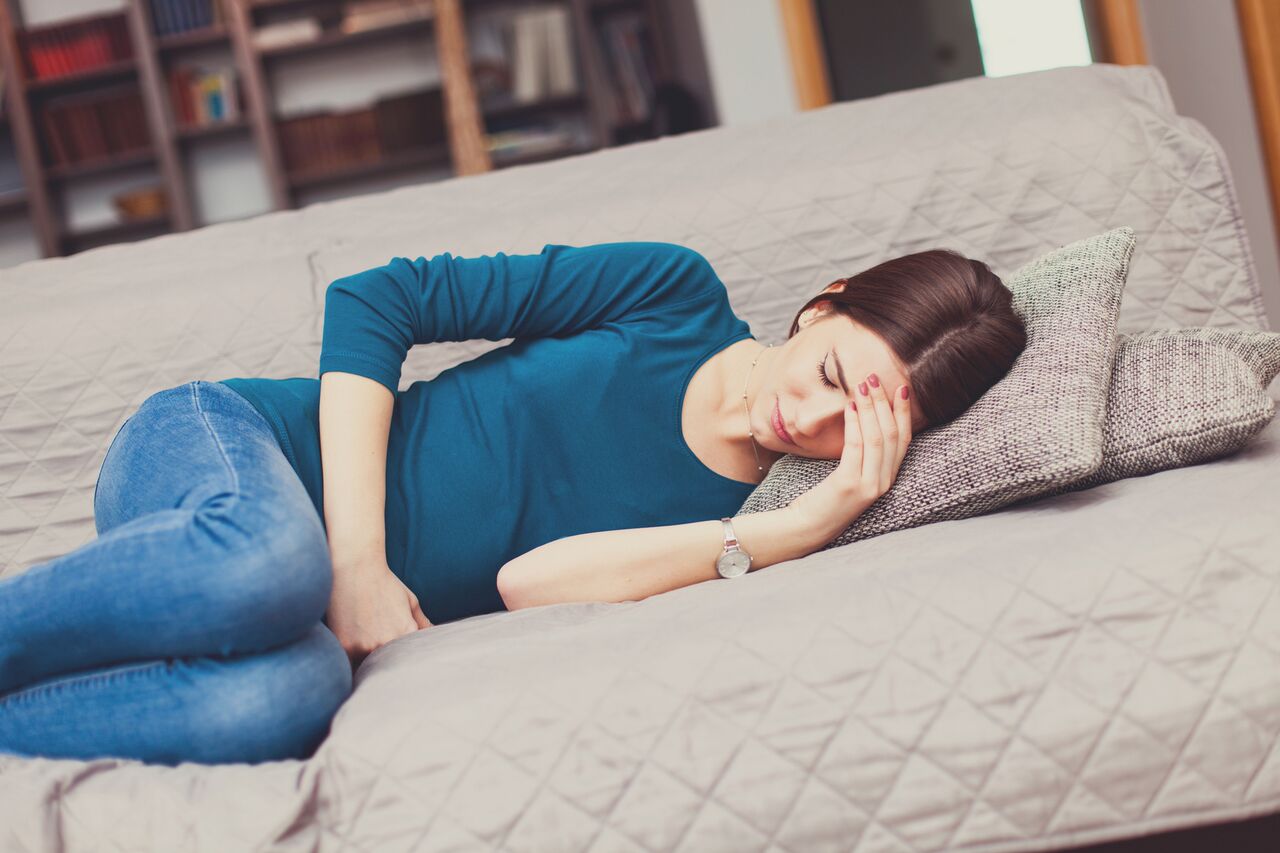
We use a lot of phrases like ‘worryguts,’ ‘butterflies in our stomach,’ ‘gut-wrenching experiences,’ and ‘situations making us feel nauseous.’ Did you ever wonder why we use them? Our gut is often referred to as our second brain and this is because of its strong sensitivities to emotions and how we are feeling. Our brain has a direct connection to our gut and vice versa; around 95% of our ‘happy hormone’ serotonin is produced in our gastrointestinal tract rather than in the brain which means that if you’re feeling emotionally distressed, the chances are your gut is too!
When stress hormones circulate our body, our digestive system shuts down causing our digestive muscles to contract more or less frequently which results in an increase or decrease in our gastric secretions and stomach acid levels. This leads to digestive complaints like constipation, diarrhoea, wind, bloating, nausea and indigestion.
Click here for more information on how stress impacts our digestive system.
Immune system
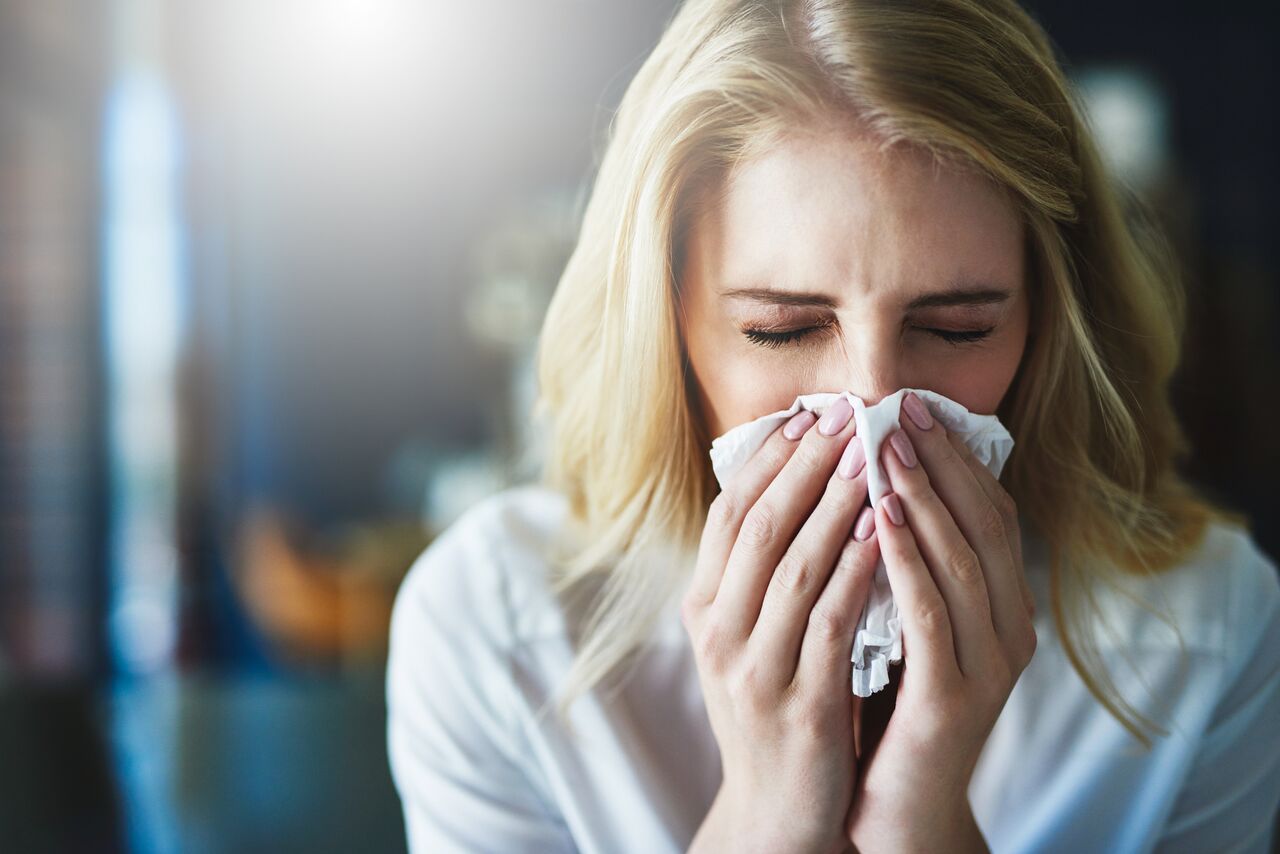
Countless research has shown that stress and anxiety can spell disaster for our immune system1 but why? Well, anxiety and stress weaken and suppress the immune system’s functions meaning that we are less responsive to invaders and our recovery is slower as a result of our primary functions focusing on our anxiety. If our stress and anxiety remains constant we over-expose our body to cortisol and other stress hormones and increase the risk of developing health issues.
What’s more, when we are in the high state of alert that is caused from feeling anxious or stressed our body rapidly uses up important minerals that we had stored in our body. Essential nutrients like magnesium, zinc and chromium are used up by the body in times of stress to help produce more cortisol.
Zinc in particular is an important mineral for helping to keep the immune system strong, healing wounds and supporting normal growth. Depletion of this mineral as a result of anxiety leaves us more vulnerable to colds and flu and makes it more difficult to recover if we do become ill.
Click here to find out more about why stress is the enemy of your immune system.
Muscle and joint pain

This is perhaps one of the lesser known physical symptoms of anxiety, but prolonged periods of worry can affect your muscles and joints too! When we are worried or stressed our joints release important minerals needed for bone formation and health into the bloodstream for the immediate attention of other tissues. These nutrients are then utilised by our most essential organs – the brain, heart and lungs – as these are the parts of the body that are most responsive and useful in times of danger.
The stress hormone cortisol is produced by the adrenal gland and released in times of stress. Small amounts of cortisol are beneficial for the breakdown of carbohydrates and for helping the healing process by stimulating inflammation. However, when we are exposed to high amounts of cortisol from chronic stress or anxiety this can become a different story altogether.
Large amounts of cortisol indirectly blocks bone growth by obstructing calcium absorption. As a result, we can lose bone mineral density which can eventually lead to porous, brittle bones and osteoporosis. Unfortunately, this calcium depletion is so fast that our diet alone is not able to replace the amount we lose when we are anxious.
Another mineral that anxiety and stress can deplete is magnesium which is important for regulating our mood, preventing fatigue and mood swings, as well as preventing muscle cramps. Low levels of magnesium can also increase our receptivity to pain which means that our pain will only be aggravated further.
Click here to find out more about how your emotions can cause muscle and joint pain.
Central Nervous System functioning
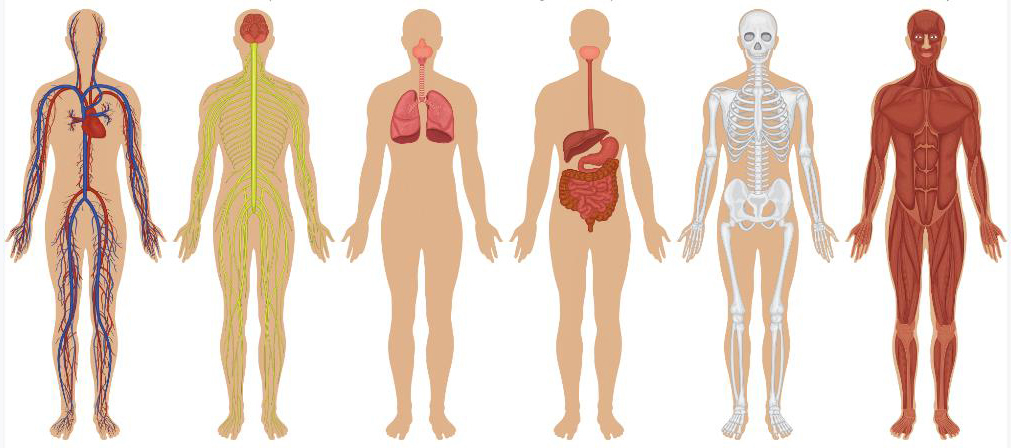
Prolonged periods of anxiety stimulates our stress response and fires up our sympathetic nervous system – this is the system that is responsible for our fight or flight response. Stimulating of our sympathetic nervous system causes a range of physical symptoms such as increased heart rate, sweating, rapid breathing and higher blood pressure. It also a releases adrenaline and cortisol to help us respond faster to stressful situations.
While short-term anxiety is beneficial for keeping us safe by encouraging us to think more before we act, long-term or chronic anxiety can do some serious damage. As we have looked at here, prolonged periods of anxiety are enough to trigger our stress response which, in turn, can lead to further anxiety-related problems such as panic attacks.
Panic attacks occur when environmental or emotional stressors signal to your amygdala, the region of the brain responsible for our fight or flight response, that we are in danger. Some theories suggest that over exposure to this stress response makes the amygdala extra sensitive and hyperaware of potential threats.2
Click here to find out more about how stress can affect your nervous system and the brain.
Energy levels and sleep
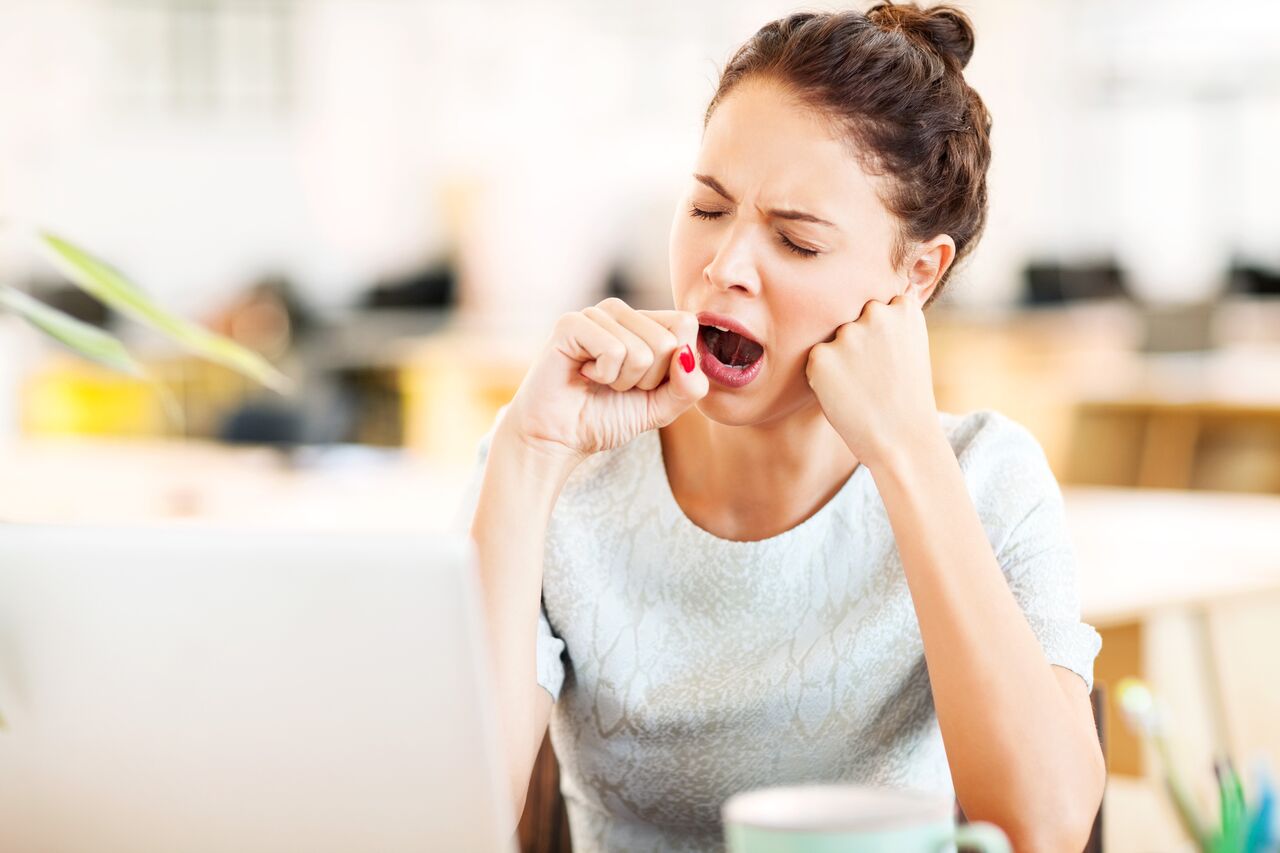
If our bodies are on high alert for long periods of time it can deplete energy resources within the body. So it comes as no surprise that high levels of anxiety can leave us feeling both emotionally and physically drained. Exhaustion caused by anxiety can happen for a number of reasons:
• We run out of adrenaline
Adrenaline released as a result of anxiety puts us in a state of high alert, but when your adrenaline runs out your body experiences an extreme dip in energy levels causing tiredness and fatigue.
• Mental tiredness
Like your physical body and your adrenaline levels, your brain can also run out of energy – this is simply because your brain is not meant to function at this extreme intensity for prolonged periods of time.
• Physical exhaustion
When we are worried and anxious we often tense up our muscles as a protective mechanism. However, over a long period of time, physically holding on to all of this tension is exhausting and not only leaves us feeling physically sore, but makes us feel drained as well.
• As a coping mechanism
Your body sometimes uses tiredness as a way to switch off from severe stress. Tiredness allows you to rest when stress won’t so, when your body needs to shut down and recover, it can often make us feel tired on purpose if we aren’t getting the break from stress that we need.
• Other mental health ailments
Anxiety, stress, low mood and depression are all connected and when we suffer at the hands of one we can become more prone to experiencing another as well. Depression and low mood in particular are known to zap your energy levels making it difficult to function and to stay active throughout the day.
• Sleep problems
Many people who experience anxiety also experience problems sleeping. This can range from struggling to get to sleep as a result of worrying, to waking up repeatedly as a result of feeling anxious. Naturally, if we haven’t had enough sleep during the night we are bound to feel more tired and fatigued throughout the day.
Click here to learn more about how anxiety can interfere with your sleep.
Can herbal remedies help?
There are a number of ways you can help to reduce your anxiety levels, these can include lifestyle changes such as diet and exercise, but herbal remedies can give you a helping hand too. The tops of the green plant Avena sativa are harvested before ripening to produce grain. This part of the herb contains many nutritional benefits and has been used as a calming solution since the 12th century.
Avena sativa contains polyphenols, including avenanthramides that have antioxidative properties. Oxidative stress plays a key factor in the development of stress and anxiety as it is thought to change the way that messages are sent along neural pathways and interfere with general brain activity. The natural antioxidants present in the herb Avena sativa counteract this oxidative stress.
We are all exposed to anxiety and worry from time to time and when I feel like this I always reach for my AvenaCalm remedy. This gentle remedy contains organically sourced Avena sativa and works to provide relief from mild stress and anxiety by its natural properties.
1 http://www.apa.org/research/action/immune.aspx
2 https://www.calmclinic.com/anxiety/amygdala





